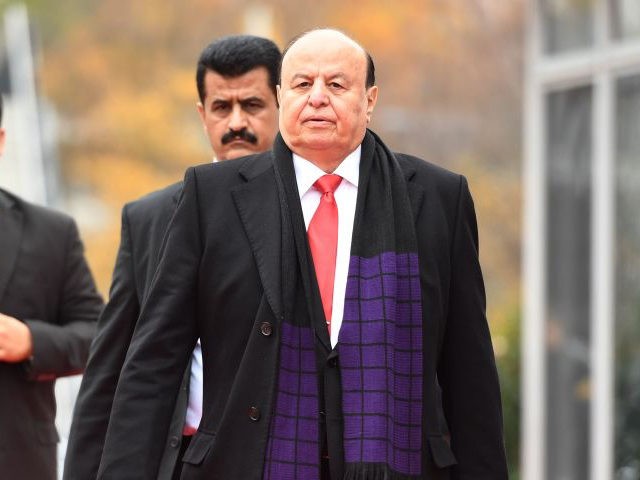Abdrabbuh Mansour Hadi, the internationally-recognized president of Yemen, driven from its capital by the Iran-backed Houthi insurgency in 2015, effectively stepped down on Thursday by ceding his powers to a new presidential leadership council.
Hadi said he did this to “allow effective leaders a role in running the country” and give them a chance to “build a new Yemen.”
Hadi said his vice president, Gen. Ali Mohsen al-Ahmar, would step aside as well. Ahmar is himself a controversial figure noted for political ambition, accused of corruption, and despised by the Houthis for his military activities.
The seven-member presidential leadership council is headed by Maj. Gen. Dr. Rashad al-Alimi and supported by an advisory commission with 50 members.
One of the other members is Aidarus al-Zoubaidi, head of the Southern Transitional Council, a secessionist movement that clashed with Hadi’s government in 2018 and eventually struck a power-sharing deal.
Alimi was formerly deputy prime minister under Prime Minister Ali Abdullah Saleh, who threw in with the Houthi rebels and was murdered by them in 2017 after he made peace overtures to the Saudis. Alimi was injured in a 2011 bombing of Saleh’s palace. He has also served as Yemen’s interior minister and has long worked behind the scenes to hold the fractious coalitions of the Yemeni government-in-exile together.
The council will wield the powers of both the presidency and vice-presidency until new elections are held, expressly including the power to negotiate a peace agreement with the Houthis.
Hadi made his announcement from Riyadh, Saudi Arabia, where he has lived in exile since the Houthi coup. Saudi Crown Prince Mohammed bin Salman met with the presidential council on Thursday morning and pledged $2 billion in support for the new Yemeni government, plus $1 billion from the United Arab Emirates (UAE).
“The Kingdom of Saudi Arabia urged the Presidential Leadership Council to embark on negotiations with the Houthis under the auspices of the UN to reach a final and comprehensive political solution that includes a transitional period moving Yemen into peace and development, so as the Yemeni people can enjoy security and stability,” the state-run Saudi Press Agency (SPA) announced.
The SPA spent Thursday morning relaying congratulatory and hopeful messages to the Presidential Leadership Council from the other member states of the Gulf military coalition, all of whom welcomed Hadi’s resignation as a positive step toward making peace in Yemen.
Houthi chief negotiator Mohammed Abdulsalam was not impressed by the news from Riyadh. He refused to say if the Houthis would be willing to negotiate with the Presidential Leadership Council, sniffing that “any activity outside Yemen’s borders is merely a farce and recreation by aggressor nations.”
Reuters analysts speculated Hadi was pushed aside because he was insular, excessively ambitious, corrupt, and maintained an alliance with an Islamist party disliked by the UAE, a key member of the Saudi-led coalition fighting against the Houthi insurgency. The aging Hadi had lost all but symbolic value in the coalition’s eyes, having held on to the supposedly “transitional” office he won in a carefully-managed 2012 election for over a decade.
The UK Guardian theorized Hadi’s resignation was “meant to unify the anti-Houthi camp after years of infighting and disputes, and was almost certainly orchestrated in Riyadh, where Yemeni factions were meeting over the past week to discuss efforts to end the war.”

COMMENTS
Please let us know if you're having issues with commenting.